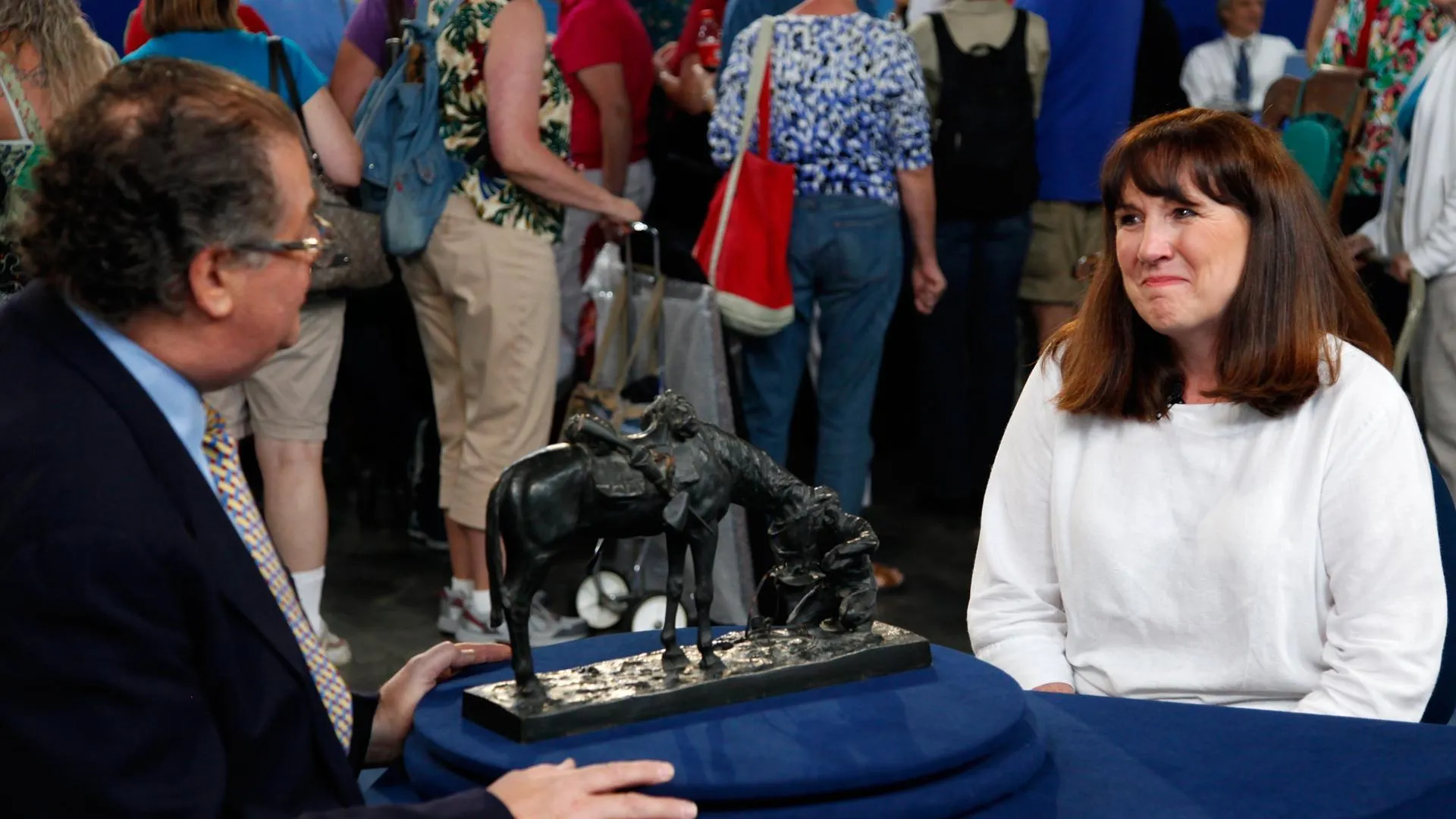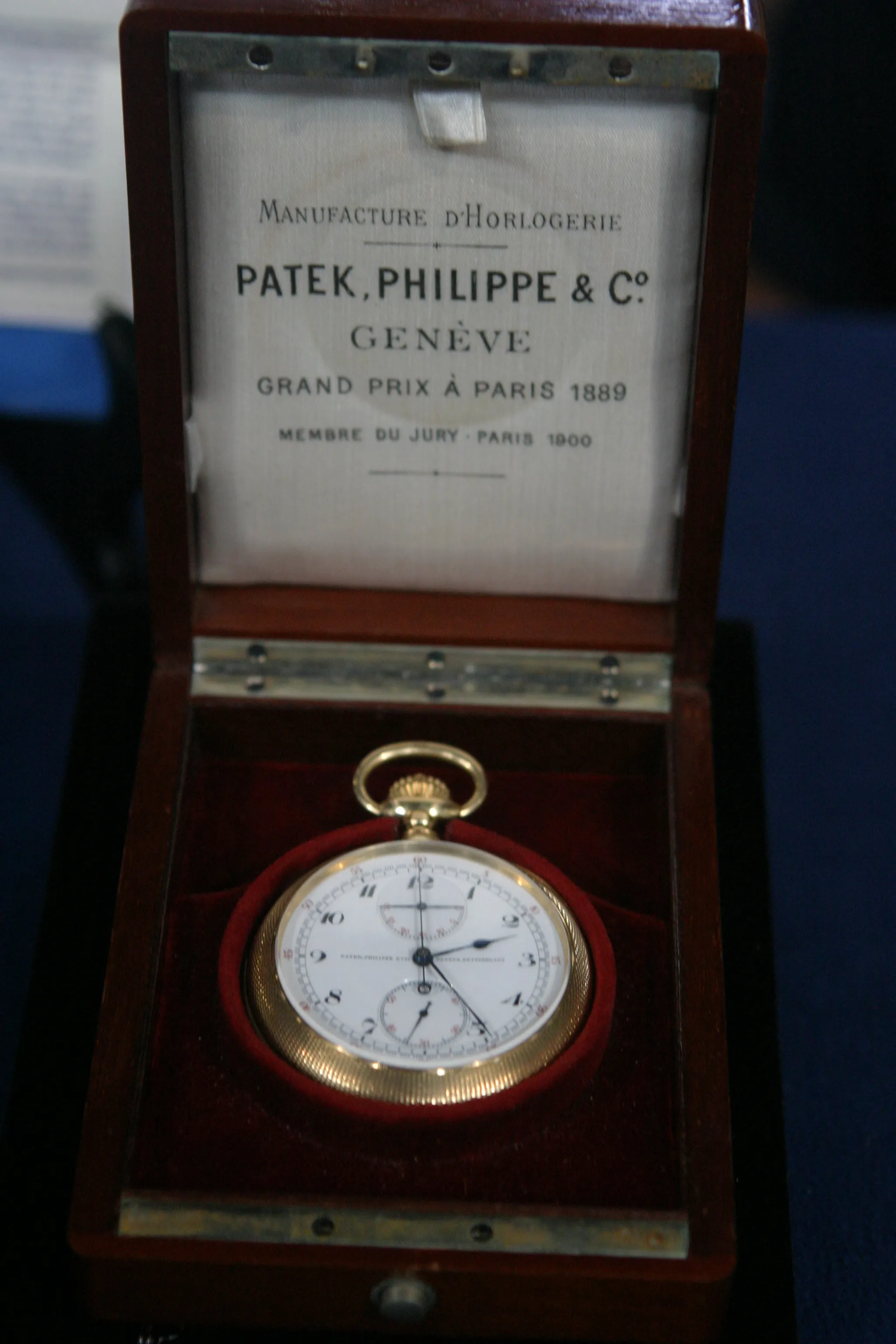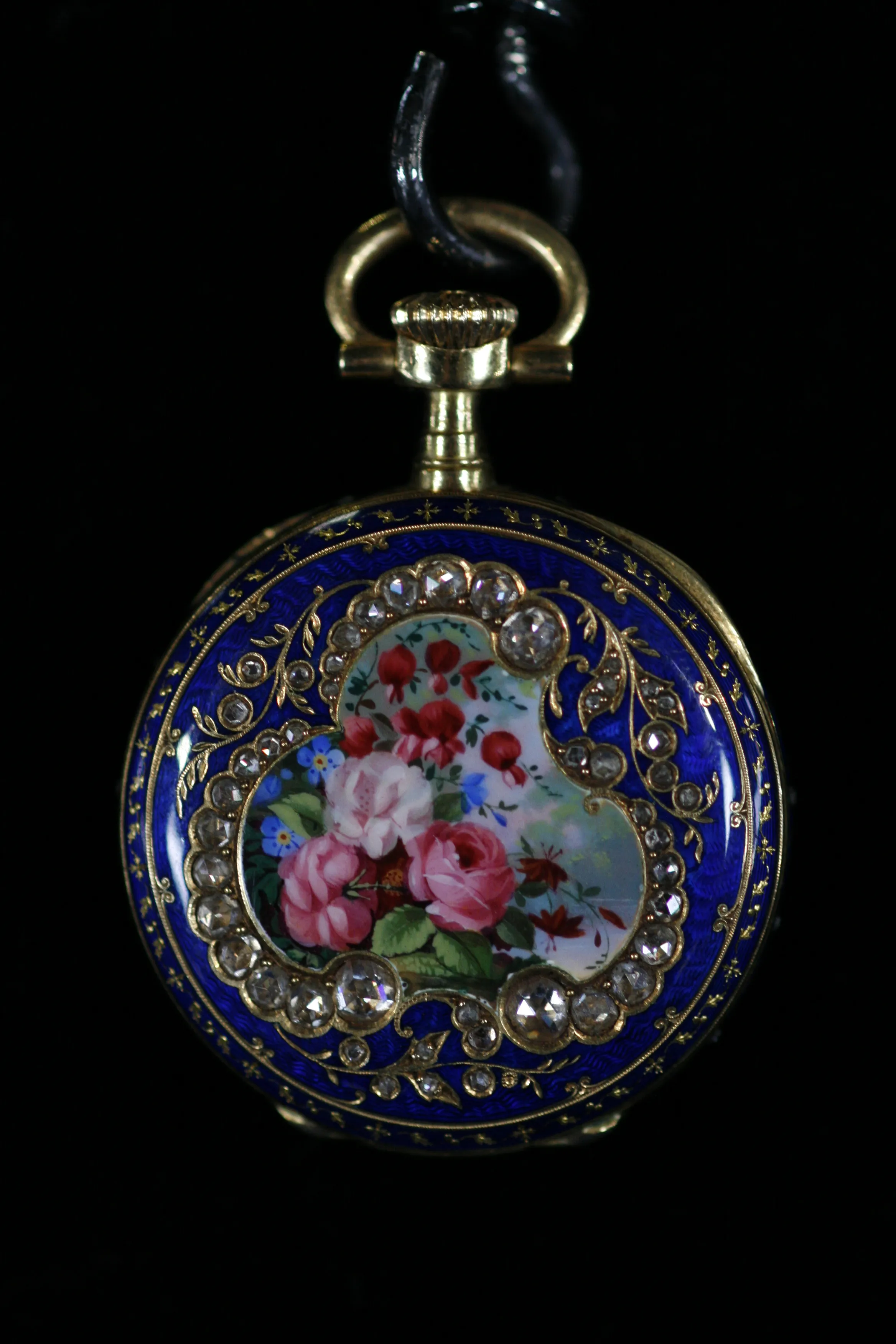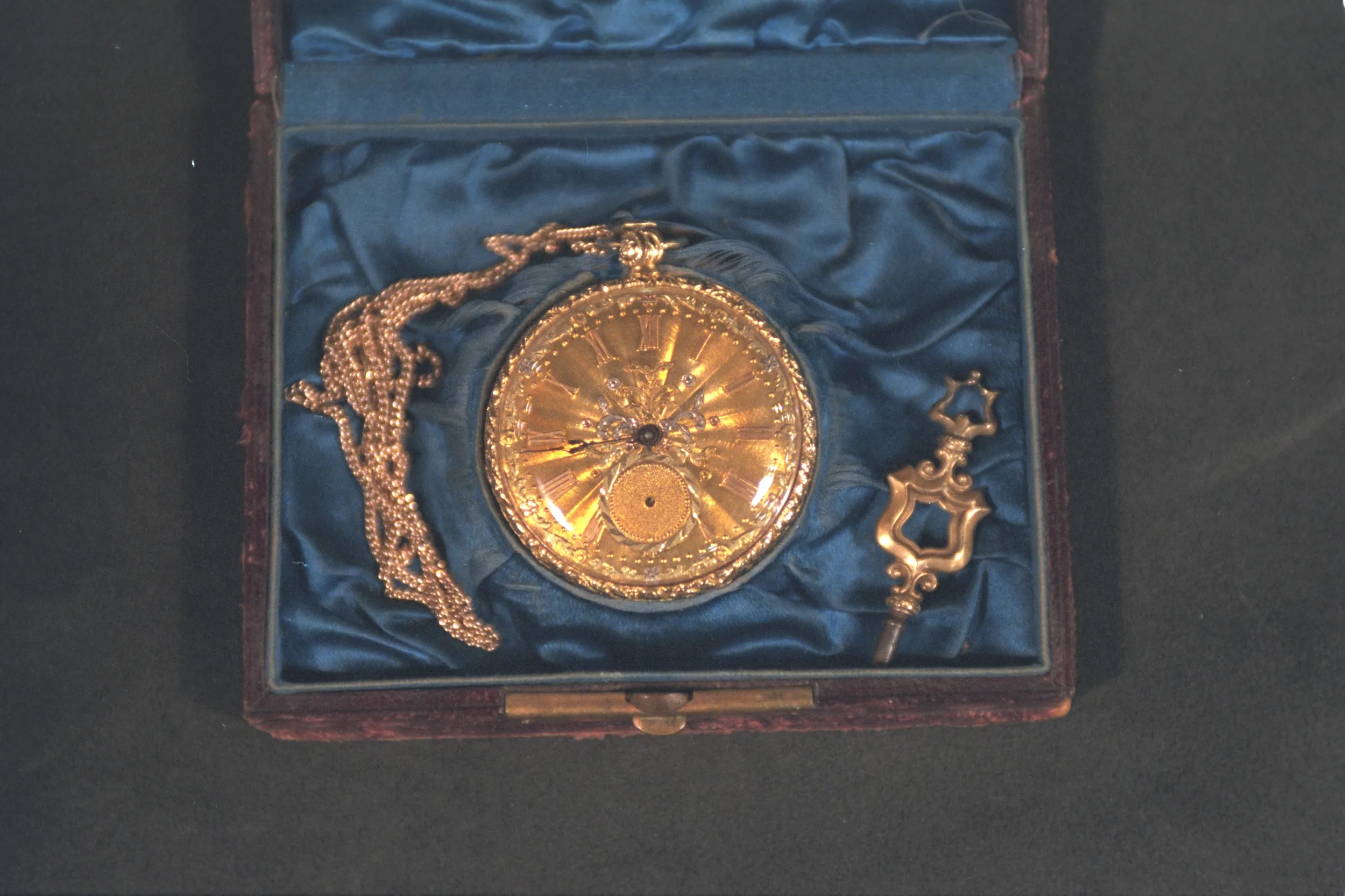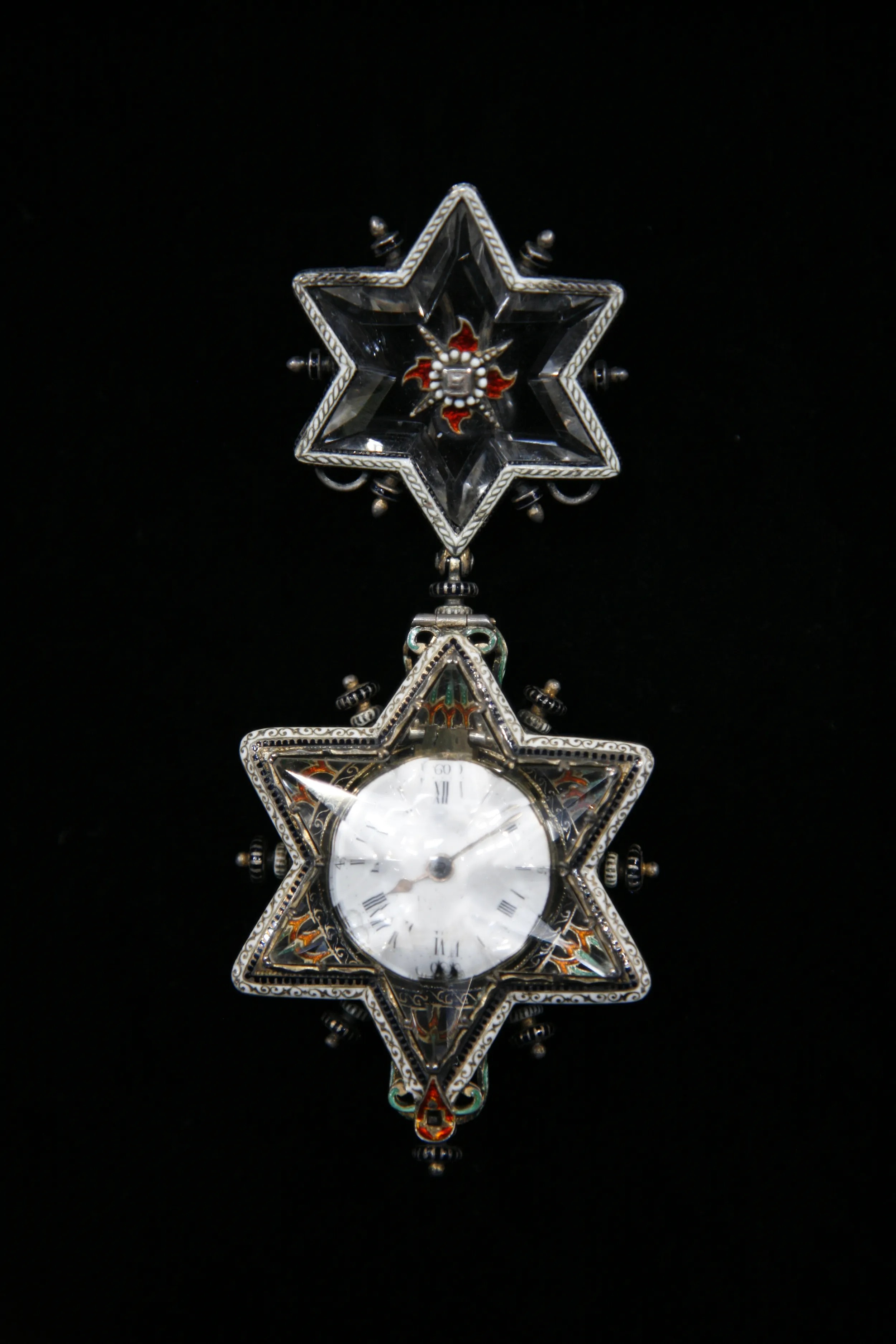GUEST: Brought in a Tiffany mantel clock. It was from my dad's stepmother's side of the family. And we really don't know how long it was in her family. It's just been passed down and passed down.
APPRAISER: And where were they from? Do you know that?
GUEST: They were from New York. It's on my mantel in my family room in the house. We keep it wound up most of the time. About once a week it will gain a couple minutes, but it keeps pretty good time.
APPRAISER: This clock was retailed by Tiffany & Co. in New York City. And they were a retailer of clocks, not a manufacturer of clocks. And the clocks that they sold were primarily of very, very high quality. This particular example has a movement that was manufactured in Boston by the Chelsea Clock Company.
GUEST: Oh.
APPRAISER: And their selling slogan is "Timekeepers of the Sea," but they also made some very high-grade mantel clock movements that they put in things like this. As a mantel clock, with that type of movement, sold by Tiffany, it's a pretty important piece. But what really makes this clock very, very special is the fact that it's in this glass case. This case is engraved by a company by the name of Sinclair. When he was very, very young, Sinclair moved from Brooklyn, New York, to Corning, which was a glassmaking center at the time. As a young boy, he became very talented in drawing natural objects like you see on this type of design. He goes to work for the Hawkes Glass Company, and it's there that he really starts to learn the skill or the trade of glassmaking. He becomes very interested in engraving glass. And Sinclair went on to form his own company. To find a clock in a glass case like this is very, very unusual. Most of the ones that you find are in Steuben-made cases. This particular one is signed on the back. It has its little trademark. It has this "S" in a wreath.
GUEST: Oh, okay, I've never noticed that.
APPRAISER: So without a doubt, we know that it's a Sinclair case. And this would have been made in the early 20th century. And that falls right into date with the Chelsea clock movement as well. The few that have been found to date have been much, much smaller. Value-wise, a clock like this in a high-retail shop somewhere in a metropolitan city, certainly would sell not so much to a clock collector but to a glass collector, without question, anywhere from $7,500 to $8,000 today.
GUEST: Oh, okay.
APPRAISER; Even in this economy.
GUEST: Well, that's very good.

